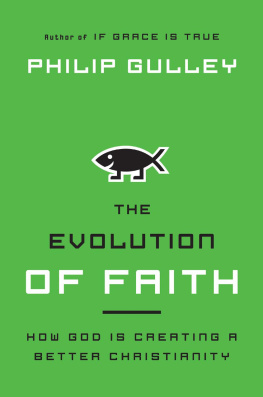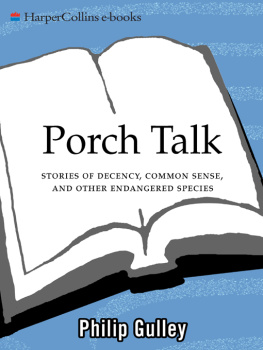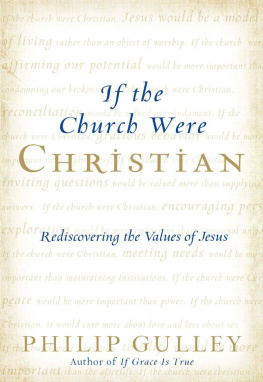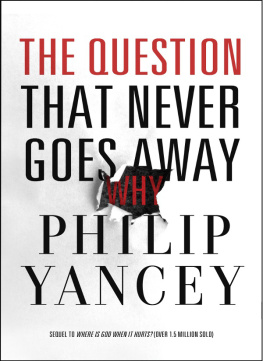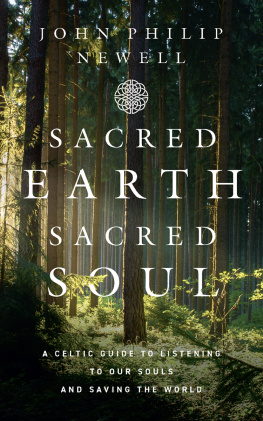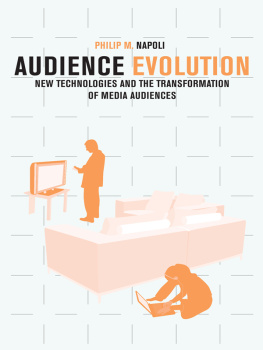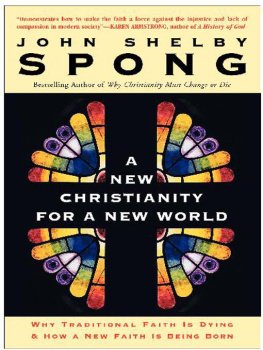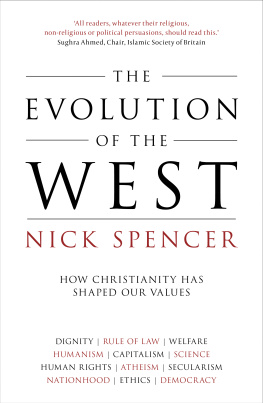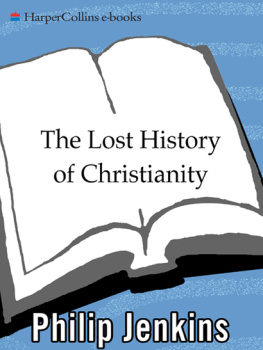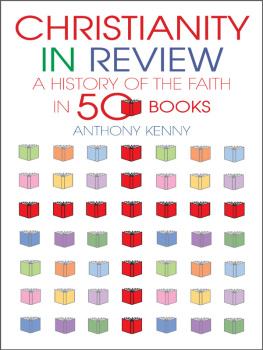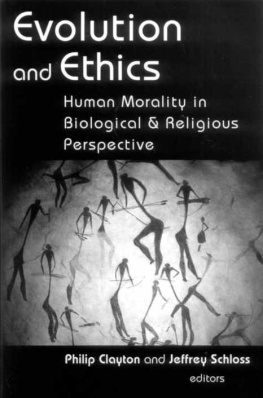Philip Gulley - The Evolution of Faith: How God Is Creating a Better Christianity
Here you can read online Philip Gulley - The Evolution of Faith: How God Is Creating a Better Christianity full text of the book (entire story) in english for free. Download pdf and epub, get meaning, cover and reviews about this ebook. year: 2011, publisher: HarperOne, genre: Religion. Description of the work, (preface) as well as reviews are available. Best literature library LitArk.com created for fans of good reading and offers a wide selection of genres:
Romance novel
Science fiction
Adventure
Detective
Science
History
Home and family
Prose
Art
Politics
Computer
Non-fiction
Religion
Business
Children
Humor
Choose a favorite category and find really read worthwhile books. Enjoy immersion in the world of imagination, feel the emotions of the characters or learn something new for yourself, make an fascinating discovery.
- Book:The Evolution of Faith: How God Is Creating a Better Christianity
- Author:
- Publisher:HarperOne
- Genre:
- Year:2011
- Rating:5 / 5
- Favourites:Add to favourites
- Your mark:
- 100
- 1
- 2
- 3
- 4
- 5
The Evolution of Faith: How God Is Creating a Better Christianity: summary, description and annotation
We offer to read an annotation, description, summary or preface (depends on what the author of the book "The Evolution of Faith: How God Is Creating a Better Christianity" wrote himself). If you haven't found the necessary information about the book — write in the comments, we will try to find it.
The Evolution of Faith: How God Is Creating a Better Christianity — read online for free the complete book (whole text) full work
Below is the text of the book, divided by pages. System saving the place of the last page read, allows you to conveniently read the book "The Evolution of Faith: How God Is Creating a Better Christianity" online for free, without having to search again every time where you left off. Put a bookmark, and you can go to the page where you finished reading at any time.
Font size:
Interval:
Bookmark:


The Evolution of
How God Is Creating a Better
Christianity
Philip Gulley

In my final year of graduate work, I, along with my fellow students, was required to write a thesis describing my theology. Because the conferral of our degrees depended upon the quality of our dissertations, writing the theses was a matter of some anxiety for us. Stories of spectacular failures circulated around the school, embellished with tales of nervous breakdowns. One widely told story (I was never able to ascertain whether it was true) described the extended commitment of a student to a psychiatric hospital after receiving a failing grade. Despite my qualms, putting into words my understanding of God turned out to be a pleasant experience, not at all the onerous task I had anticipated.
Seventeen years later, as I was sorting through old papers, I happened upon a copy of my thesis and read it. While my lifes experience confirmed some of my previous observations, much of what I had written years before made little sense now. Assertions about the character and activity of God, prayer, the purpose of the church, the nature of sin, knowing Gods will, the person of Jesus, and the afterlife now seemed implausible, if not impossible. I could no longer affirm what I had once believed.
I wasnt saddened by this realization, nor did I have any desire to return to my former beliefs. Indeed, I felt energized by my theological journey, believing it revealed a vitality and passion often lacking in my more orthodox days. I had pitched my tent in a new, yet unexplored land, was pleased to be there, and wanted to investigate it further and map that territory for others by writing books such as this one.
Even as I reflected on the theological evolution in my life, I was also conscious of the language of my thesis, noting it was incomprehensible to anyone who hadnt studied theology. I obviously wanted to show my professors I was well-versed in theological jargon. Of course, one purpose of higher education is to teach a student the specific language of a given field. Medical students learn the language of anatomy and medicine. Law students become conversant in legal terminology. Those of us who study God learn the language of theology. But unlike the fields of medicine and law, people who havent formally studied theology feel not only perfectly equipped, but duty bound, to engage in religious discourse. This is a compliment to our vocation, that those not schooled in the field wish to engage it. Unfortunately, weve not always made their participation easy, using language they neither know nor speak. Consider one of the more influential theologians of the past hundred years, Karl Barth, whose signature work, Church Dogmatics, was thirteen volumes containing over six million words. He worked on it for thirty-six years, and when he died still wasnt done. Many words can be said about Barths work, but accessible isnt one of them. One has to wonder whether some who work in theology erect such barriers for the express purpose of excluding others, preferring the rarified air of theological speculation over a helpful, accessible spirituality.
The harm this causes is obviousby excluding so many people from theological exploration, we increase the theological ignorance in our society, making people especially vulnerable to bad theology and unscrupulous purveyors of self-serving religion. A woman who lost her young child to leukemia was told it was because of unconfessed sin in her life. Because the woman was theologically uneducated, and the person pronouncing judgment buttressed his declaration with scriptures, she believed the pronouncement to be true and plunged into an abyss of guilt where she suffered for many years before seeking counseling. Others give money they cant spare to unprincipled hucksters who promise Gods wealth and favor in return. Still others persist in abusive relationships believing it is Gods will. On a far too regular basis, millions of people suffer the venomous effects of ill-conceived religion. That so relatively few people test theological assertions with reason, science, and logic is a testament to religions ability to both seduce and silence its adherents. It is no wonder more and more thoughtful people are finding atheism an attractive choice.
In recent years, books written by atheists Richard Dawkins, Sam Harris, and Christopher Hitchens have earned a large and enthusiastic audience. I have found their books to be helpful and even compelling. Indeed, if push came to shove, I would choose their ethical humanism over many brands of Christianity Ive encountered. But I would like to think that a well-reasoned theology, informed by common-sense, human experience, and the more enlightened aspects of religious tradition, can provide a helpful way forward for those of us who seek transcendent meaning, spiritual community, and joy.
For too many years Christianity has been more about constraint and less about liberation. Bound by dated creeds, traditions, and doctrines, the Christianity of the past has held too many of its disciples back, not carried them forward. This book is an invitation for you to consider your faith in a fresh way, informed by common sense, positive tradition, and personal experience. It represents, in a very real sense, an evolution of Christian faith. It is not an exhaustive theology. I write and think in broad strokes, preferring the sweeping beauty of a spiritual landscape over dogmatic minutiae. Nevertheless, I hope this book is a starting place, helping you think more deeply about the themes that might constitute an evolving Christianity for you. I write with no other agenda than to help your life become meaningful, abundant, and joyful. Whether this book inspires you to become a Christian or an ethical humanist is secondary to me. My dream for you is a life well-lived, a life of compassion, grace, and dignity, seeking and celebrating authenticity and integrity wherever you find it. To that end, I invite you to read this book carefully, discuss it with your friends, and consider the questions for reflection, trusting that a sincere examination of these issues will bless your life, as it has mine.
Several years ago, at the invitation of a friend, I attended his childhood church on the Sunday it celebrated its one-hundredth anniversary. The pastor, in an exuberant moment, spoke of the enduring proclamation of the church, how since the time of Jesus the unchanging Christian gospel had been proclaimed throughout the world. The congregation nodded in agreement, even affirming their assent with robust Amens. As a student of church history, I knew the pastors claims were inaccurate, that over the past two thousand years, the churchs message had undergone significant change, influenced by pivotal figures and movements. I even suspected that this specific church had experienced considerable theological change over its hundred years, reflecting the varied perspectives of its leaders.
I thought of the diverse mutations of Christianity I had encountered in my lifethe Roman Catholicism of my mother, the Baptist leanings of my fathers family, the Church of Christ tradition of a brother and sister, the Methodist perspective of another brother, the Presbyterian community of yet another sibling, and my own Quaker tradition. Each of those expressions emphasized a particular facet of the Christian experience. Each understood the mission of the church differently, employed differing styles of worship, and did not agree on how God could be known. They were not in harmony about the priorities of Jesus, and they did not share a common understanding of what it meant to be Christian, what it meant to please God, or how the church should be governed. Though they all bore the Christian name, their differences in belief were so considerable that one could reasonably conclude they represented different religions altogether. And that was just Christianity in the Western world. Were we to have stirred into the mix the many strains of Eastern Orthodoxy, the differences would have been staggering indeed.
Font size:
Interval:
Bookmark:
Similar books «The Evolution of Faith: How God Is Creating a Better Christianity»
Look at similar books to The Evolution of Faith: How God Is Creating a Better Christianity. We have selected literature similar in name and meaning in the hope of providing readers with more options to find new, interesting, not yet read works.
Discussion, reviews of the book The Evolution of Faith: How God Is Creating a Better Christianity and just readers' own opinions. Leave your comments, write what you think about the work, its meaning or the main characters. Specify what exactly you liked and what you didn't like, and why you think so.

